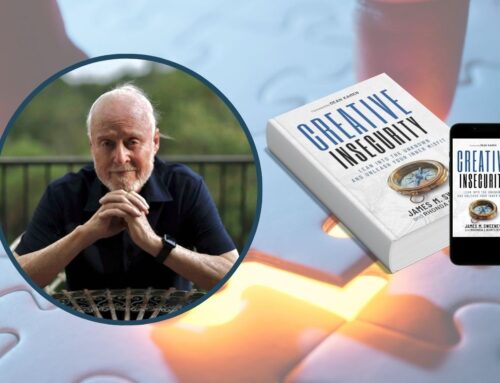Why does a positive mindset matter when motivations change? Business owners begin their journey with a distinct vision driven by enthusiasm and determination. However, as their companies expand, unforeseen obstacles emerge. These can include financial support evaporating, market dynamics changing, and personal priorities shifting. When motivation fades, an optimistic attitude becomes the difference between pushing forward and giving up.
A strong mindset isn’t just about optimism. It’s about resilience, adaptability, and strategic thinking. Research from Johns Hopkins suggests that positive thinking can improve problem-solving and decision-making. This blog explores the science behind motivation shifts, the benefits of positive thinking in business, and practical strategies to stay focused.
Understanding Motivation Shifts
Before launching a business, entrepreneurs should consider key questions to assess readiness. According to Forbes, asking ‘What motivates you?’ is crucial. However, as businesses evolve, motivation can shift due to personal changes, external pressures, or industry trends. Psychologists define motivation in two categories:
- Intrinsic motivation: Fueled by enthusiasm and a sense of personal satisfaction
- Extrinsic motivation: Fueled by external rewards, like money or recognition
Numerous entrepreneurs start with a strong sense of intrinsic motivation, but as time passes, external pressures like investor demands, market competition, and burnout can dominate their mindset. When that happens, motivation can dwindle unless a strong mindset steps in to reframe challenges as opportunities.
Research on Motivation Decline
Research published in the Journal of Small Business & Entrepreneurship found that a positive mindset and psychological resources significantly impact entrepreneurial outcomes. The study, which applies self-determination theory (SDT) and psychological capital literature, highlights that hope and gratitude can buffer the negative impact of financial insecurity, reducing stress and fostering resilience. Positive psychiatry experts emphasize that focusing on strengths and psychosocial factors, such as optimism and adaptability, can enhance entrepreneurial success.
This aligns with the philosophy of creative insecurity, which discusses how embracing uncertainty and shifting perspectives can reignite motivation during challenging transitions.
The Power of an Upbeat Perspective During Transitions
When motivations change, entrepreneurs face a critical choice: resist the shift or embrace it. Those who cultivate a hopeful attitude find ways to pivot rather than panic.
Case Study: Airbnb’s Reframing Strategy
Airbnb was founded in 2008 during the financial crisis, facing initial struggles with low bookings and financial challenges. Despite the struggles, the founders focused on affordability and leveraged the emerging “sharing economy” to attract budget-conscious travelers. This strategic shift helped Airbnb gain traction, eventually growing into a multi-billion-dollar business.

Strategies to Maintain a Resilient Attitude
Entrepreneurs can’t control every external factor, but they can control their response. Here are three actionable strategies:
- Reframe challenges as opportunities
Instead of viewing obstacles as setbacks, see them as learning experiences. Embracing creative insecurity, the concept of embracing discomfort encourages entrepreneurs to innovate rather than remain stagnant. For a deeper dive into challenging conventional wisdom, check out The Contrarian’s Checklist, which offers unique insights into thriving in uncertainty.
- Develop a resilient routine
Incorporate habits like journaling, exercise, and mindfulness to maintain clarity. Engaging in self-reflection enhances entrepreneurs’ self-awareness, leading to greater adaptability in the face of change.
- Surround yourself with growth-minded people
Networks matter. Join mastermind groups, seek motivational mentors, and engage with communities that challenge and inspire you.
Overcoming Challenges & Staying Focused
Even the best entrepreneurs struggle with self-doubt. The key is recognizing doubt as part of the process rather than a roadblock.
Example: Sara Blakely’s Perseverance
Sara Blakely, founder of Spanx, faced numerous rejections from manufacturers who didn’t believe in her product. Even with unfortunate results, she maintained a confident disposition, continued pitching her idea, and ultimately built a billion-dollar company. Her resilience shows how an unwavering belief in oneself and persistence can lead to incredible business success.
Example: Daymond John’s Persistence
Daymond John, the founder of FUBU, started his business with limited resources and faced numerous rejections from investors and retailers. Instead of giving up, he leveraged grassroots marketing and community support to grow his brand. His persistence and adaptability turned FUBU into a multi-million-dollar company, proving that belief in oneself and creative problem-solving can overcome initial setbacks.
Practical Tip: Create a “Why” Statement
Revisiting your original motivation can reignite purpose.
Write down:
- Why you started
- What impact do you want to make?
- Who benefits from your success?
When motivation dips, this reminder helps refocus your mindset.
Encouragement to Embrace Change with Confidence
Adjusting to changes in motivation is not only essential but also beneficial. Entrepreneurs who foster an optimistic attitude transform setbacks into breakthroughs. James M. Sweeney, a serial entrepreneur and expert in start-ups, emphasizes the importance of a strong mindset. He advocates for mental conditioning, urging leaders to turn uncertainty into innovation rather than fear. His book, Creative Insecurity, provides practical guidance for navigating uncertainty with confidence.

For deeper insights, explore his YouTube channel, where he shares free resources on mindset, entrepreneurship, and innovation.
➡️ Check out his latest content here.
By prioritizing personal development and resilience, entrepreneurs can maintain motivation and thrive in any market. The key? Embrace change, trust the process, and move forward with confidence.
Struggling with shifting motivations? Discover how a positive mindset can help you adapt and succeed. Get James M. Sweeney’s new book today and start embracing uncertainty with confidence!





Leave A Comment